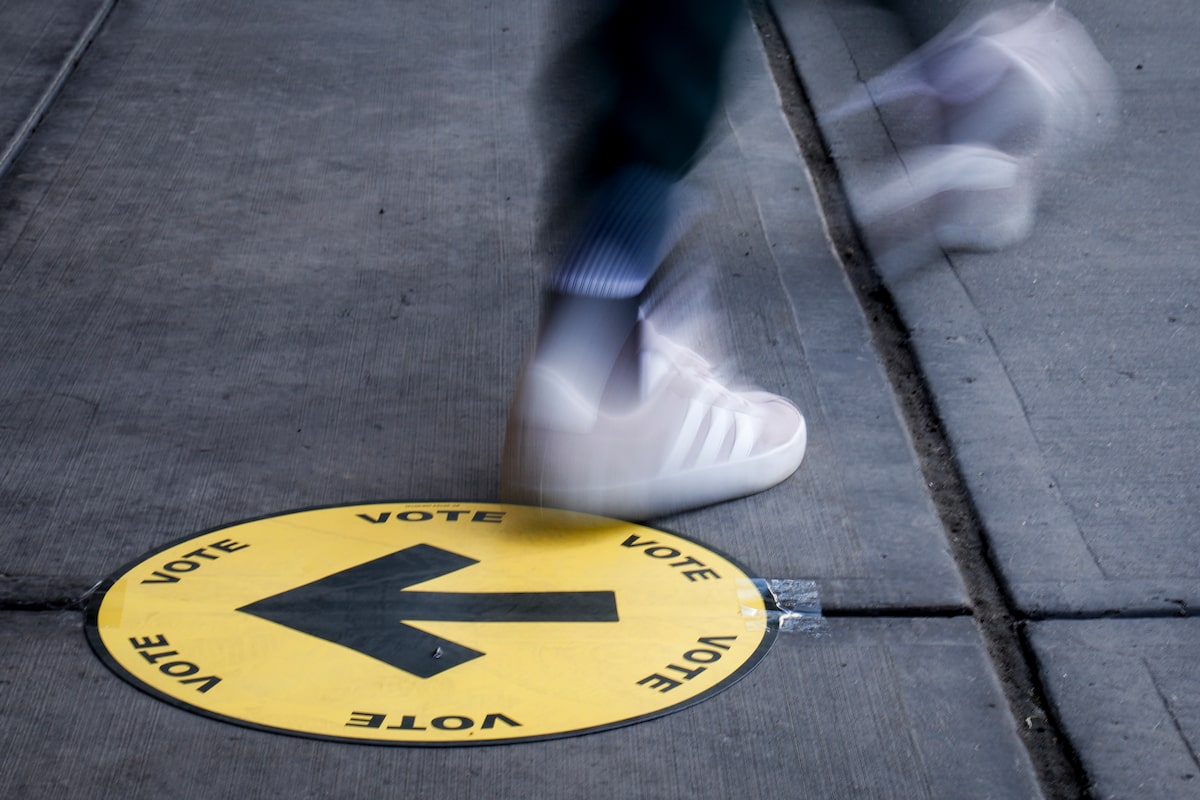A single ballot with more than 200 candidates would have posed accessibility, integrity and counting challenges, Elections Canada says.Jeff McIntosh/The Canadian Press
Elections Canada says its decision to switch to a write-in ballot for an Alberta by-election where Conservative Leader Pierre Poilievre is vying for a seat was made to maintain the accessibility and integrity of the vote, after more than 200 candidates entered the race in protest.
The federal agency announced on Monday that the ballot in the Aug. 18 by-election in the Battle River-Crowfoot riding would be a single page where voters can write in the name of their chosen candidate. It will not list the names of the 214 people who have filed nomination papers, most of whom are affiliated with the Longest Ballot Committee – a group advocating for electoral reform.
The by-election will replace Damien Kurek, a Conservative MP who was re-elected in April but stepped aside to allow Mr. Poilievre, who lost his own Ottawa-area riding, to seek a seat in Parliament.
Elections Canada issued a statement on Tuesday saying that switching to an adapted write-in ballot, which has never before been used at its polling stations, was a better option than printing a long and cumbersome form with every candidate’s name.
“A single ballot with 200+ candidates is possible; however, it poses accessibility, integrity and counting challenges which makes it an undesirable option,” the agency said in a statement.
The agency added that such a long list of candidates would require changes to the size of the text and paper, which would be difficult to fold and unfold for counting, and would require more ballot boxes.
“This is a bigger challenge in a large, rural riding like Battle River-Crowfoot, where transporting materials to each polling location is already more onerous than in smaller ridings with more delivery options available,” the statement said.
The riding of Battle River-Crowfoot is the latest to be targeted by the Longest Ballot Committee, which in recent years, has signed up dozens of candidates in several elections and by-elections, including in Mr. Poilievre’s former Ontario riding of Carleton, during the April general election, where 91 candidates ran.
Mr. Poilievre has said the protest is a “scam” and called for changes to the law to prevent it from happening again.
Elections Canada said the adapted ballot is similar to special ballots, which are usually used for mail-in voting or voting at local Elections Canada offices.
The agency declined The Globe and Mail’s request for an interview with Chief Electoral Officer Stéphane Perrault.
As long as the voter’s intention is clear on the ballot, it will be considered valid, even if the name is misspelled. Elections Canada also said a list of candidates will still be available at every voting table.
Lisa Young, a political science professor at the University of Calgary, said the adapted ballot was an imperfect response to a difficult problem. She said an enormous ballot is expensive to produce, and creates barriers for those who are visually impaired and some elderly voters. However, she said a write-in ballot may present challenges for others.
She said there are ways to guard against these kinds of protests, such as increasing the number of signatures of registered electors that are needed to nominate a candidate, or preventing one person from acting as the official agent for multiple candidates in a single riding. Although, she said both of those options would require changes to the Canada Elections Act.
Acadia University political science professor Alex Marland said overall, he supports election rules being changed to prevent the long-ballot protests, but noted legislators would need to ensure the changes aren’t harming regular independent candidates. He says the official agent suggestion is an example of a reform that could achieve both goals.
He said Elections Canada’s move to adapted ballots is “absolutely reasonable, under the circumstances.”
Mr. Poilievre is widely expected to win the race, which Mr. Kurek won with 82 per cent of the vote in the April election. As such, Prof. Marland doesn’t expect the write-in ballot – and the subsequent deciphering of handwriting by election officials – to impact the final outcome. However, he said it could cause complications in a closer race.
Opinion: In his new riding, Pierre Poilievre will be stuck between a rock and a separatist place
“In the event of a by-election that’s close,” he said, “There will be discussions and debates about whether or not you know what somebody’s handwriting meant.”
The Longest Ballot Committee argues that politicians face a conflict of interest in making election laws, so decisions on those laws should be made by an independent, non-partisan body such as a citizens’ assembly.
Several of the candidates running in Battle River-Crowfoot have run in previous Longest Ballot Committee protests, including John Dale of Guelph, Ont., who said in an interview that this is his fifth time running.
Mr. Dale said he is passionate about proportional representation. He learned about the committee’s initiative on social media and contacted the organizers to be a candidate.
The organizers are the ones who arrange for candidates to meet the signature requirements, he said. In most cases, Elections Canada requires a candidate to collect 100 signatures from people living in the riding to be on the ballot.
Even though there will be a write-in ballot, Mr. Dale said the protest is getting people talking about electoral reform, noting that Elections Canada will still have a long list of candidates at the polls for voters to refer to.
“I think it will still serve its purpose, even though it would have been really cool to see a super huge ballot,” he said.

